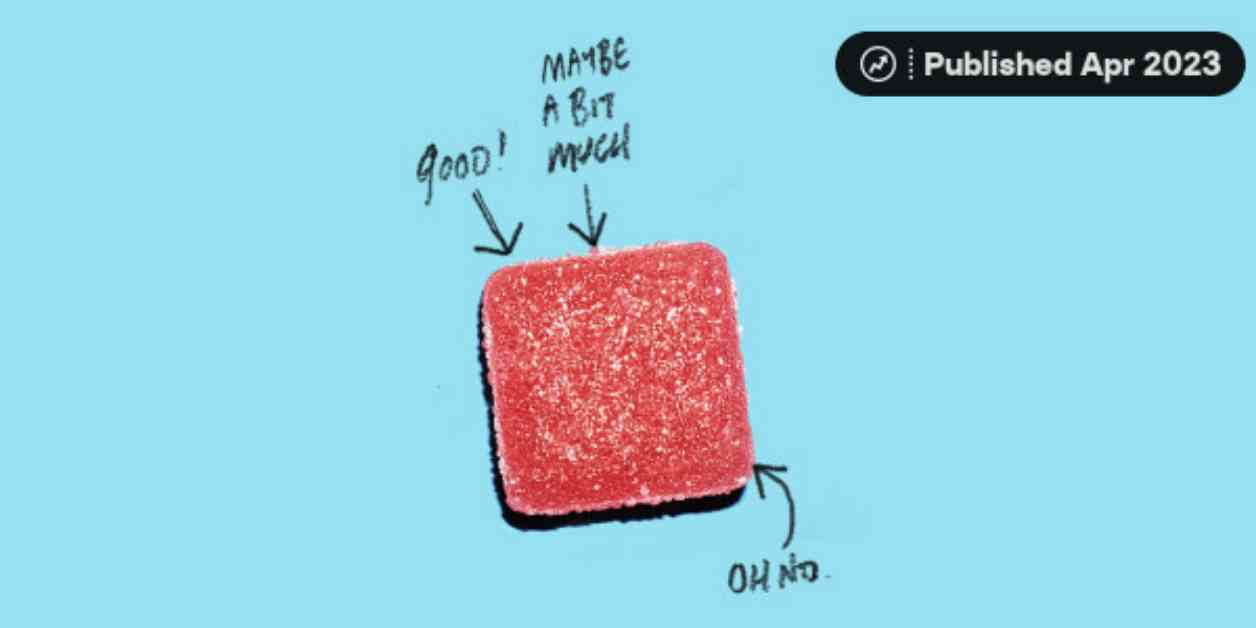Amber Herrin, a 19-year-old from Petal, Mississippi, shared her experience of overdosing on edibles, cannabis-containing food products, when she was 17. She recounted feeling panicked, fearful, and experiencing a range of distressing symptoms after consuming three edibles without knowing the proper dosage. Herrin’s experience highlights the importance of understanding how much cannabis to consume and the potential risks of overconsumption.
Overdosing on cannabis, whether through smoking, eating, or drinking products, can lead to symptoms such as dizziness, weakness, paranoia, panic, anxiety, and more. It’s crucial to be aware of the signs of an overdose and know what steps to take if you or someone you know experiences adverse effects from cannabis use.
Research shows that a significant number of individuals worldwide consume cannabis, with a study in Canada indicating a higher likelihood of ER visits or hospitalizations among cannabis users. Additionally, events like “4/20,” a day celebrated by weed enthusiasts, can lead to increased cannabis consumption and potential emergencies related to overuse.
Understanding the effects of different doses of THC, the active ingredient in cannabis, is essential for safe consumption. While legal cannabis products often indicate THC content, homemade edibles may pose a challenge in determining dosage. For first-time or infrequent users, starting with a low dose and gradually increasing is recommended to avoid uncomfortable effects.
When it comes to consuming cannabis edibles, the effects may take longer to kick in compared to smoking, leading some individuals to inadvertently overconsume. It’s important to wait for the effects to begin before consuming more and be mindful of the prolonged duration of edibles’ effects, which can last up to 12 hours.
In cases of cannabis overdose, recognizing symptoms such as extreme confusion, anxiety, paranoia, and fast heart rate is crucial. Seeking medical help is advised if symptoms persist or worsen, especially for individuals with underlying medical conditions or psychiatric disorders that may be exacerbated by cannabis use.
While cannabis toxicity typically resolves on its own, severe cases may require medical intervention. Most individuals can manage the effects of cannabis at home, but extreme paranoia or psychosis may necessitate observation in a hospital setting. Keeping cannabis products secure and out of reach of children and pets is vital in preventing accidental overdoses.
For individuals experiencing anxiety or discomfort due to cannabis use, creating a low-anxiety environment, practicing deep breathing or meditation, and seeking support from friends or helplines like the Too High Hotline can be beneficial. The hotline offers educational resources, emotional support, and guidance on managing cannabis-related issues in a non-emergency setting.
Overall, promoting harm reduction and responsible cannabis use is essential as legalization continues to expand. By educating individuals on safe consumption practices, recognizing overdose symptoms, and providing access to support services, we can help mitigate the risks associated with cannabis use and ensure a safer experience for all users.


















